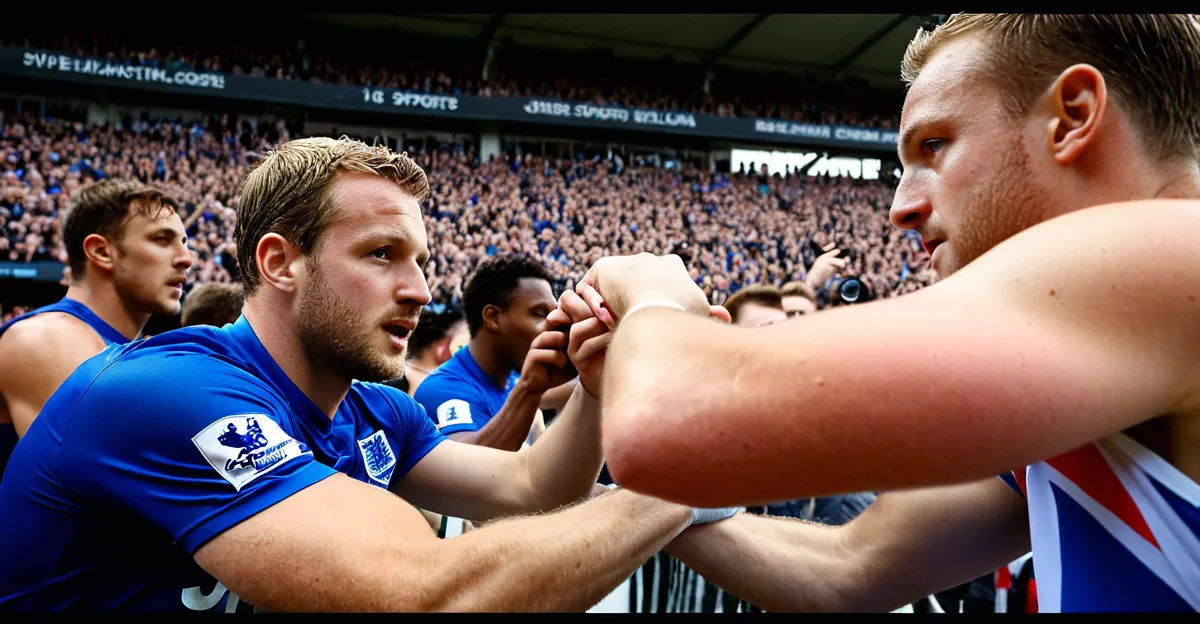Core Distinctions in UK Sports Culture Compared to Other Countries
The UK sports culture is deeply rooted in history and tradition, setting it apart from international counterparts. Unlike many countries where emerging sports dominate, the UK maintains long-established games like football, rugby, and cricket at the heart of its sporting identity. This historical continuity influences not only participation but also how communities engage with sports, fostering a sense of belonging that transcends generations.
In contrast to regions favouring basketball or baseball, the UK’s sports traditions promote distinct communal values. Football in the UK, for instance, is more than a game; it’s a cultural pillar that reflects local pride and national identity. This passion is amplified by traditional support systems, such as local clubs, which anchor sports within their communities.
Additional reading : What Future Challenges Could UK Sports Face in the Next Decade?
These differences in sports traditions highlight how UK sports culture prioritizes legacy and community interaction. National pride often intertwines with sporting events, reinforcing collective memory and identity. Moreover, the pervasive history of these sports offers a unique experience, where spectators and players alike participate in rituals that have evolved over centuries. The result is a vibrant sports culture that emphasises continuity and deep-rooted social cohesion unmatched in many international settings.
Popular Sports and their Cultural Significance
The football in the UK holds a distinct cultural position unmatched by many countries. Unlike the US, where American football and basketball dominate, football in the UK transcends being a simple sport—it is an emblem of community identity and national pride. This distinction arises not only from its popularity but also from centuries-old club rivalries and deeply embedded traditions, making matchdays a shared cultural experience.
Additional reading : How Do UK Sports Sponsorships Influence Brand Perception?
Rugby culture in the UK also differs sharply from its perception abroad. While rugby union in the UK often aligns with middle and upper classes and prestigious schools, rugby league is traditionally a working-class sport. Such nuances shape each code’s regional following and social connotations, a divergence rarely seen in countries where rugby is less stratified.
Meanwhile, cricket traditions carry a refined heritage, combining leisurely pace with ceremonial customs like tea breaks that underscore the sport’s historical roots. Cricket’s role in British society reflects enduring values of patience and sportsmanship, contrasting with the faster-paced games favored elsewhere.
Supporting these popular sports, school and local clubs nurture participation from a young age, embedding these games as lifelong passions. This foundation solidifies the popular sports differences that characterise the UK’s sporting identity.
Fan Behaviour and Matchday Traditions
Distinctive UK sports fans are renowned for creating a vibrant and passionate matchday atmosphere unlike many other countries. Their enthusiasm is expressed through unique sporting rituals that root back generations, offering both continuity and community spirit. One prominent tradition is the chanting and singing during matches, which unites supporters and energizes players. These chants often carry historical significance or local pride, forming an integral part of the fan experience.
Compared internationally, UK fan cultures stand apart from American or Asian sports enthusiasts, where spectator engagement may be more commercial or entertainment-focused. In contrast, UK matchdays are steeped in local identity, with fans often congregating in local pubs before and after games to share stories, reinforcing social bonds and community ties. This tradition fosters an inclusive environment where both young and old come together.
Moreover, the intensity of fan involvement in the UK reflects a deeper connection to clubs and their sporting heritage. Unlike in some European countries where fan behaviour can be more subdued or formalised, UK supporters’ spirited participation continuously shapes the matchday atmosphere, making it an essential aspect of the overall sporting culture.
Community Involvement and Grassroots Sports
Grassroots sports in the UK play a foundational role in sustaining local sports traditions and fostering community engagement. Unlike some countries where professional sports dominate public attention, the UK’s sports culture values community clubs as vital hubs for participation. These clubs often operate with strong local ownership, ensuring that support and decision-making remain closely connected to the community’s needs.
The extensive network of grassroots sports UK-wide enables people of all ages and backgrounds to engage with sports from an early age. This accessibility nurtures talent and passion before athletes reach professional levels, creating a pipeline that benefits the entire sporting ecosystem. The social atmosphere in these clubs encourages camaraderie, reinforcing the importance of sport beyond competition—as a social glue and source of collective identity.
In comparison with other countries, the UK’s grassroots sports structure is distinctive in its deep integration into local life. Community ownership enhances loyalty and sustainability, contrasting with more corporate or centralized models elsewhere. This hands-on involvement enriches not only athletic development but also local pride, reinforcing why grassroots sports UK communities cherish remain indispensable to the nation’s sporting fabric.
Media Coverage and Sports Consumption
UK sports media plays a pivotal role in shaping how the public experiences and perceives sports. National broadcasters like the BBC have long upheld broadcast traditions that blend comprehensive coverage with nuanced sports journalism. This approach contrasts with other countries where sports media may prioritise entertainment or commercial appeal over in-depth analysis. The BBC’s commitment to airing key national events ensures broad accessibility, reinforcing the cultural significance of UK sports.
Sports consumption habits in the UK are also distinct. Viewers often engage with multiple platforms—traditional TV, radio, and increasingly digital streams—yet the emphasis remains on communal viewing experiences, such as gathering at home or local pubs. This shared consumption enhances the social fabric surrounding sports.
Moreover, UK sports media actively influence public interest by spotlighting grassroots efforts and historic tournaments alongside professional leagues. Unlike some international markets where media focuses narrowly on elite sports, UK coverage promotes inclusivity, boosting participation and sustaining grassroots sports UK. Through this balanced media landscape, the UK maintains strong ties between fans, communities, and their cherished sports traditions.
Influence of Class, Heritage, and Social Factors
Small text here
Understanding sports and class UK reveals deep-rooted social dynamics shaping participation and club loyalty. For example, rugby union traditionally aligns with middle-class and upper-class communities, often linked to private schools and elite institutions. In contrast, rugby league historically emerged from working-class northern England, reflecting broader social divisions. These class distinctions are more pronounced in the UK than in many other countries, where such sharp divides are less evident or absent.
The UK’s cultural heritage enriches sports through unique events like The Ashes cricket series and Wimbledon tennis championships. These tournaments embody longstanding traditions, combining sport with ceremony and national pride. Their heritage appeal fosters a sense of continuity and respect for the past that is rarely matched internationally.
Social context profoundly influences sporting traditions in the UK, where social dynamics in sports shape not only who participates but also how these sports are celebrated. This interplay explains why some games carry symbolic social meanings beyond mere competition. Importantly, acknowledging these factors helps appreciate UK sports culture as a layered, historically anchored social phenomenon rather than just recreational activity.
Evolving Trends and Globalisation in UK Sports
The globalisation of sports has profoundly influenced the UK sports culture, introducing new dynamics while challenging traditional norms. International players feature prominently in UK leagues, especially in football and rugby, boosting the quality and diversity of competition. This influx broadens fan bases and cultivate multicultural engagement, reflecting evolving societal demographics.
How has the UK balanced tradition with global sports trends? The answer lies in maintaining core rituals and historical events while embracing modern influences. For example, Premier League clubs actively sign top talent worldwide but preserve matchday customs and community connections central to UK identity.
Fan demographics in the UK have shifted, with younger, more diverse supporters engaging through digital platforms and social media. This evolution fosters accessibility and inclusivity without eroding established cultural practices. Moreover, UK sports institutions adapt by expanding outreach and grassroots programs to welcome wider participation.
In contrast to countries heavily commercialising sport, the UK seeks equilibrium between sports globalisation and honoring legacy. The continuity of historic tournaments alongside international fixtures illustrates this balance, allowing UK sports culture to evolve organically yet retain its distinctive character in an increasingly global arena.







